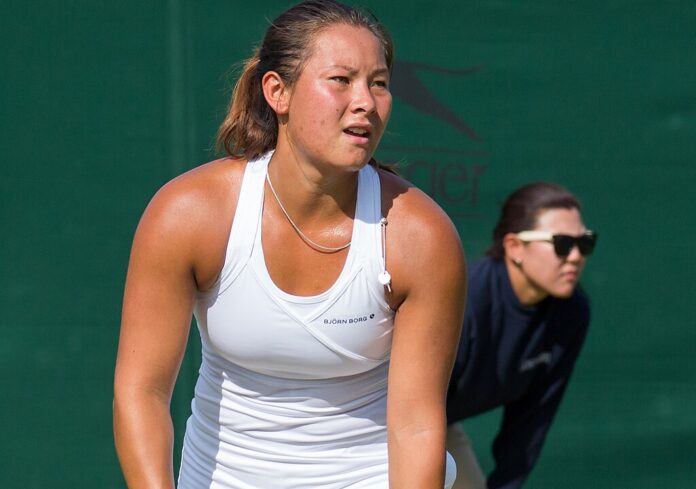Moore’s career in limbo after the court finds failed drug test was not caused by tainted meat
Tara Moore, Britain’s former top-ranked women’s doubles player, has been banned from tennis for four years after the Court of Arbitration for Sport (CAS) upheld a doping appeal lodged by the International Tennis Integrity Agency (ITIA).
The 32-year-old, who has long denied knowingly taking performance-enhancing drugs, was first provisionally suspended in June 2022 following a failed drug test that revealed the presence of banned anabolic steroids nandrolone and boldenone. Moore claimed the results were due to eating contaminated meat shortly before her test.
An independent tribunal initially cleared Moore of wrongdoing in 2023, ruling that she bore “no fault or negligence.” That decision allowed her to resume competing after nearly 19 months of suspension. But on Tuesday, CAS dramatically overturned the verdict, concluding Moore had “failed to establish” that the nandrolone concentration in her system matched levels consistent with tainted food.
“The panel concluded that Ms Moore failed to establish that the anti-doping rule violation was not intentional,” CAS said in a statement. “The ITIA appeal is therefore upheld and the original decision is set aside.”
Embed from Getty ImagesMoore’s four-year ban is effective from 15 July 2025, though she will be credited for the time she already served under provisional suspension. Her own cross-appeal, which sought either a dismissal of the nandrolone result or an affirmation that she bore no fault, was declared inadmissible.
Karen Moorhouse, the ITIA’s chief executive, defended the organisation’s decision to challenge the tribunal’s original ruling. “Our bar for appealing a first-instance decision is high, and the decision is not taken lightly,” she said. “In this case, our independent scientific advice was that the player did not adequately explain the high level of nandrolone present in their sample.”
Moore expressed anguish during her initial suspension, describing how her “reputation, ranking and livelihood” had slowly slipped away. After returning to competition earlier this year, she was still attempting to rebuild her professional standing. Ranked 187th in the world in doubles and 864th in singles, she had most recently appeared in the 2025 Australian Open, where she and her Austrian partner Julia Grabher exited in the first round.
Once a rising star in British tennis, Moore made headlines in 2019 with an astonishing comeback victory in Sunderland, rallying from 0-6, 0-5 and match point down to beat Jessika Ponchet of France. She also represented Great Britain in the Billie Jean King Cup and achieved her highest career doubles status in February 2022 when she reached No 1 in the national rankings—just months before the provisional doping ban was imposed.
Moore’s case highlights the intense scrutiny surrounding food contamination claims in doping defence, a legal grey area that continues to divide experts. The failure of her contaminated meat argument may cast a longer shadow over future cases brought by athletes using similar defences.
Her four-year ineligibility period means Moore will not be eligible to return to professional tennis until July 2029—by which time she will be 36 years old, raising doubts about whether she can or will mount a comeback.
